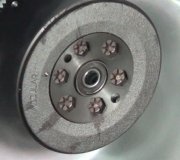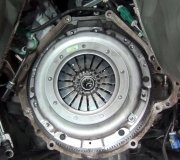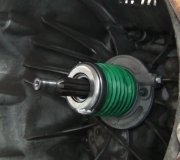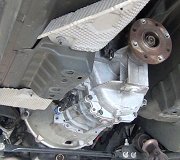Engine stalls when cold immediately after starting
This kind of stalling problem often means the engine is not getting enough fuel and/or too much air. A cold engine needs a fairly rich fuel mixture to start, and to idle smoothly while it warms up. Any of the following could cause or contribute to this kind of stalling problem:
* An engine vacuum leak. Check for loose or broken vacuum hoses, leaks around the intake manifold gasket or throttle body, leaks around the PCV valve and EGR valve.
* A dirty or defective airflow sensor. A sensor that has been contaminated by fuel varnish or dirt will under report airflow and be slow to react to changes in airflow. This can upset the air/fuel mixture causing idle, stalling and hesitation problems. Cleaning the airflow sensor wire with aerosol electronics cleaner can often restore normal operation and cure the problem.
* A defective idle speed control system. Idle speed on a fuel injected engine is controlled by allowing a small amount of air to bypass the throttle. If the idle air bypass circuit is plugged with dirt or fuel varnish, or the solenoid valve is sticking or broken, the engine may not get enough air to idle normally causing it to stall. Cleaning the idle air bypass circuit in the throttle body with aerosol throttle cleaner will often remove the gunk and solve your stalling problem. If a good soaking with cleaner fails to fix the stalling problem, check the wiring connector. It might be loose or corroded. If no wiring faults are found, you may have to replace the idle speed control solenoid.
* A faulty coolant sensor. If the coolant sensor is bad and tells the PCM the engine is colder or warmer than it really is, that can screw up the fuel mixture, too. If the coolant sensor reads colder than normal, or cold all the time, the engine will run rich. This won't cause cold stalling but it can make for a rough idle once the engine warms up, and it kills fuel economy. If the coolant sensor reads warmer than normal, or reads hot all the time, the PCM will lean out the fuel mixture too much, causing the engine to stall when it is cold. See the article on coolant sensors for how to test the sensor. Replacing a defective coolant sensor will cure this cause of stalling.
* A faulty air temperature sensor. This sensor tells the PCM the temperature of the air entering the intake manifold. The PCM needs an accurate input so it can balance the air/fuel mixture properly. Just like a bad coolant sensor, a bad air temperature sensor can upset the fuel mixture causing stalling problems.
* A bad Manifold Absolute Pressure (MAP) sensor. This sensor monitors intake vacuum, which the PCM uses to determine engine load. If the MAP sensor is not reading accurately, the PCM may add too much fuel or not enough, causing the engine to stall. See the article on MAP sensors for how to diagnose this sensor.
Check all those things and get back to me.
Thanks
SPONSORED LINKS
Tuesday, December 1st, 2009 AT 1:33 AM




